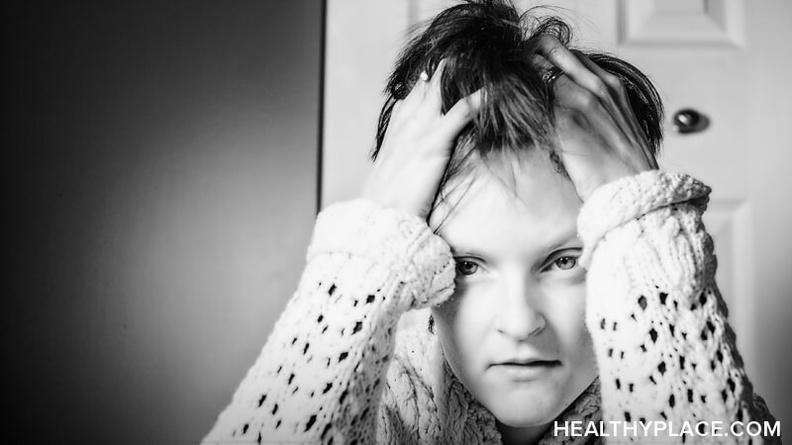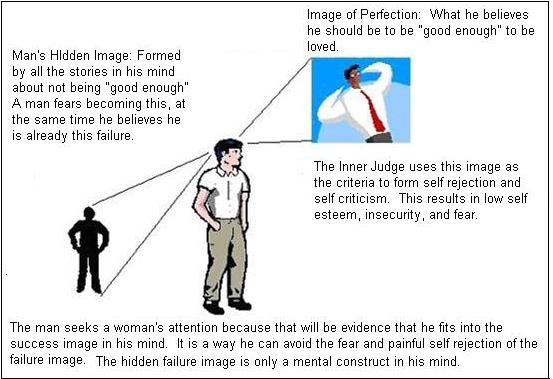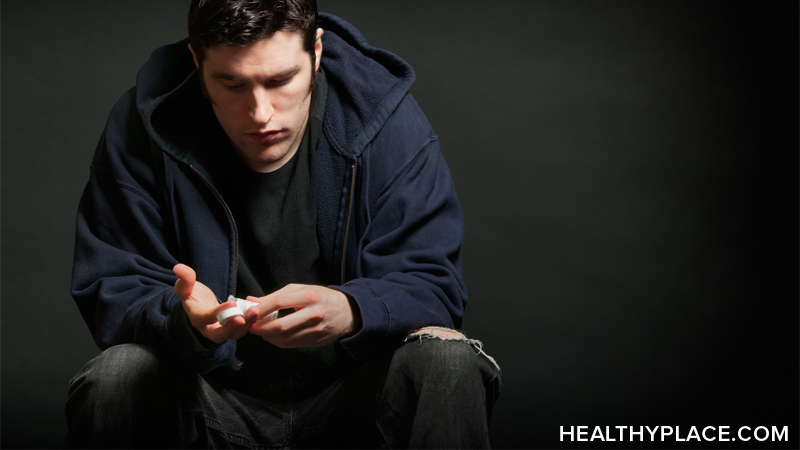
Is jealousy ruining your relationships? Find out about the root causes of jealousy and how to deal with and overcome feelings of jealousy.
Overcoming Jealousy, Anger, and Control in Relationships
Overcoming jealousy is like changing any emotional reaction or behavior. It begins with awareness. Awareness allows you to see that the projected stories in your mind are not true. When you have this clarity you no longer react to the scenarios that your mind imagines. Jealousy and anger are emotional reactions to believing scenarios in your mind that are not true. By changing what you believe you change what your imagination is projecting and you can eliminate these destructive emotional reactions. Even when there is justification for the reaction, jealousy and anger are not beneficial ways to deal with the situation and get what we want.
Trying to change anger or jealousy once you are in the emotion is like trying to control a car skidding on ice. Your ability to handle the situation is greatly improved if you can steer clear of the hazard before we get there. This means addressing the beliefs that trigger jealousy instead of attempting to control your emotions.
To permanently dissolve the emotions such as anger and jealousy in relationships means changing the core beliefs of insecurity and mental projections of what your partner is doing.
The steps to permanently end jealous reactions are:
- Recovering personal power so that you can get control of your emotions and refrain from the reactive behavior.
- Shift your point of view so that you can step back from the story in your mind. This will give you a gap of time in which to refrain from a jealous or angry reaction and do something else.
- Identify the core beliefs that trigger the emotional reaction.
- Become aware that the beliefs in your mind are not true. This is different than "knowing" intellectually that the stories are not true.
- Develop control over your attention so you can consciously choose what story plays in your mind and what emotions you feel.
There are a number of elements that create the dynamic of jealousy. As such, effective solutions will have to address multiple elements of beliefs, point of view, emotions, and personal will power. If you miss one or more of these elements you leave the door open for those destructive emotions and behaviors to return.
By practicing a few simple exercises you can step back from the story your mind is projecting and refrain from the emotional reaction. If you really have the desire to change your emotions and behavior you can do it. It just takes the willingness to learn effective skills. You will find effective exercises and practices to overcoming the emotional reaction of jealousy in the Self Mastery Audio Program. The first few sessions are free.
Understanding Emotional Reactions mp3 (28 min)
Jealousy mp3 (7:27)
Principle triggers of jealousy are beliefs that create feelings of insecurity.
Feelings of low self-esteem are based in beliefs we have in a mental image of who we are. In order to eliminate the insecurity and low self-esteem we don't have to change, we just have to change our belief in the false self-image. While some people assume this may be hard, it is only challenging because most people have not learned the skills necessary to change a belief. Once you practice the skills you find that changing a belief takes very little effort. You just stop believing the story in your mind. It takes more effort to believe something than it does to not believe it.
Self Judgment can amplify the feeling of insecurity
It is not enough to "know" intellectually that we are creating the emotion. With only this information the Inner Judge is likely to abuse us with criticism for what we are doing. The Inner Judge might use this information to take us on an emotional downward spiral to further insecurity. For real lasting change, you will need to develop skills to dissolve the beliefs and false self-images and gain control of what your mind projects. The practices and skills are available in the audio sessions. Session 1 and 2 are free sessions and should lend insight into how the mind works to create emotions. Session 1 and 2 also give you excellent exercises to recover some personal power and begin shifting your emotions.
One of the steps to changing a behavior is to see how we actually create the emotion of anger or jealousy from the images, beliefs, and assumptions, in our mind. This step not only allows us to take responsibility but taking responsibility for our emotions also puts us in a position of power to change them.
If you are in a relationship with a jealous partner, and they want you to change your behavior to prevent the jealousy then they are not taking responsibility. If they say things like "If you wouldn't _____ then I wouldn't react this way." That type of language flags an attitude of powerlessness and an attempt to control your behavior with a deal.
How the mind creates the emotions of jealousy and anger
I've outlined the dynamics of jealousy and anger in the explanation below. If you are seeking to overcome jealousy it is likely that you already know the dynamics that I describe. This description may help fill in some gaps of how the mind twists knowledge into self-judgment and reinforces low self-esteem and insecurity. This intellectual understanding can help develop awareness to see these dynamics at the moment you are doing them. But to really make effective changes you will need a different skill set. Knowing how you create your emotional reactions doesn't give you enough information about how to change them. Just like knowing you got a flat tire because you ran over a nail doesn't mean you know how to patch the tire.
For the illustration, I'll use a man as the jealous partner. I refer to various images in the mind and you can use the diagram below for reference.
It starts with a man feeling insecure about himself. Insecurity comes from his False Hidden Image of being "not good enough". With the belief that this false image is him, rather than an image in his mind, the man creates self-rejection in his mind. The emotional result of self-rejection is a feeling of unworthiness, insecurity, fear, and unhappiness.
Compensating for Insecurity
In order to overcome the emotion generated from his Hidden False Image, he focuses on his perceived positive qualities. From these qualities, the man creates a more positive False Image of himself. I call this the Projected Image because this is how he wants to be seen. The emotional result of a positive self-image is no self-rejection and no feeling of unworthiness. There is greater acceptance for himself, therefore he creates more love and happiness. Notice that he has not changed, he is just holding on to a different image in his mind depending on the moment.
The Hidden Image beliefs become the triggers of unhappiness while the Projected Image triggers more pleasant emotions. It is important to note that both images are false. Both images are in the man's mind and neither one is really him. He is the one that is creating and reacting to the images in his imagination. He is not an image in his imagination.
The man's mind associates the Projected Image with qualities women are attracted to. Often the qualities are considered positive as a result of the assumption that women are attracted to them. When the man gets attention from a woman he associates himself with the Projected Image rather than the "Not Good Enough" image. The strengthened belief in the Projected Image results in more self-acceptance, love, and happiness in his emotional state.
It is the man's action of acceptance and love that changes his emotional state. It is not the image or the woman's attention that change his emotion. These are only triggers that activate the man's mind towards certain beliefs, self-acceptance, and love.
The man's mind often makes the false assumption that "she makes him happy" or that he "needs" her to be happy. It only appears this way because he is noticing the woman's relationship to his emotional state. Often the man doesn't realize that she is just an emotional trigger for his mind to express love. He may not have formed other triggers for expressing his own acceptance and love so he is dependent on a woman for a trigger. When the man recognizes that she is only a trigger and his role of expressing acceptance and love is what changes his emotional state, then the man doesn't "need" his partner in order to be happy.
The man's conflicting False Images might look like this in his mind.

Controlling Behavior
The man is operating from the false belief that he is happier because of a woman's attention and love. When he imagines that her attention is on someone or something other than himself, he reacts with fear. The majority of the fear is not about losing the woman as he might falsely believe. The majority of the fear is about avoiding the emotional pain he creates in his mind with the Hidden Image.
Without her attention, his Hidden Image beliefs become active. His point of view about himself also moves into perceiving from this "not good enough" state. His emotion of unworthiness and unhappiness follows his paradigm of beliefs and point of view.
The man attempts to get and control the woman's attention so that the Projected Image beliefs are active. He works to "activate" her "trigger" to support his Projected Image beliefs. It is the mechanism he knows for avoiding his emotionally unpleasant Hidden Image beliefs. He is not aware that it is the expression of love and acceptance that is the means to change his emotional state.
Anger and punishment to control behavior
One of the mechanisms we learn early in life is to control other people's attention and behavior through the emotion of anger. When we were punished as children, anger often accompanied that punishment. Sometimes just harsh words were enough to get us to change behavior. At a very minimum when someone was angry at us, it got our attention. In this way, we learned early in life to use anger as a means to control other people's attention, and as a punishment to control behavior. As we got older we didn't necessarily unlearn this pattern.
The jealous man uses anger towards his partner in order to get and control her attention. Anger also works as a punishment with the result of inflicting emotional pain on the woman. By punishing the woman with anger the woman may change her behavior in order to avoid emotional punishment in the future.
The man's use of anger may not be his preferred choice. But his behavior of anger is the result of a false belief paradigm. The man may "know" differently at the level of his intellect, but his behavior is based in the false beliefs and Hidden Image that push his emotions.
The actual result of Controlling Anger
With his anger, the man gets the opposite result that he was conditioned to get as a child. An adult generally has more power to resist the punishment of anger than does a child. The woman will withdraw from him because of her tendency to avoid the emotionally unpleasant. Her withdrawal will then activate his Hidden Image beliefs that he was working to avoid. The man's belief-emotion cycle returns to the beginning. This is emotionally painful.
The Analysis after the Incident
After a jealousy and anger incident, there is an opportunity to look at and analyze the events. For the jealous man, this time can often be more painful emotionally. This is when his self-judgment can be at its worst.
The man plays over in his mind the behavior of anger and control. However, now it is reviewed from the viewpoint of the Inner Judge in his mind. The Inner Judge does the analysis and condemns him. The Inner Judge specifically holds up the Projected Image and then points out that "he failed" to live up to that standard. Based on the Projected Image standard he can only conclude he is a failure and not good enough.
The anger incident, when viewed by the Inner Judge is "evidence" that he is actually the person that fits the Hidden Image description. Accepting and believing this judgment results in the man feeling unworthy, guilt, and shame. The belief, emotion, and point of view of the Hidden Image character is reinforced
The Inner Judge does not give the man a fair trial. It is a hanging Judge. The Inner judge does not assess the role of the Belief System, False Images, or the Point of View. The man is at the mercy of forces in his mind that he has not been trained to see and deal with. With awareness of these forces and some specific practice, he can begin to get control over his emotional state.
This chain reaction happens very fast
The man has gone through an array of emotions and self-images in his mind, usually very quickly. Often the process happens so fast that he is not aware of what the mind and belief system has done. Also, the denial system pushes his mind toward not acknowledging the Hidden Image as that would be too painful emotionally. Because of the multiple elements of the reaction, it is easy to miss critical elements such as point of view and assumptions of how emotion is created. Missing these critical elements distorts our conclusions and makes our efforts to change ineffective.
Efforts to change behavior don't seem to work
The principal problem in the analysis is that the man studies the events from the point of view of judgment. The judgment adds to the rejection. It also operates to reinforce the belief in the standard of Perfection. This point of view reinforces the Hidden Image and the Projected Image beliefs which are part of the core cause. The very part of our mind that is doing the analysis is actually reinforcing the core causes.
The man is looking for a solution, and in this paradigm of unworthiness, the solution looks like he should become the "Projected Image." If he can become the confident, strong, kind, and loving person he "knows" he is, then he will like himself and the woman will love him and everything will be fine. He does not see that the Projected Image is formed in his imagination.
There are other problems with this approach.
1. The man's belief that he is the Projected Image is undermined by his belief that he is not "good enough." The Hidden Image beliefs create a feeling of unworthiness. Being perfect may compensate at times, but the feeling of unworthiness will seep through until the Hidden image is dealt with.
2. Even when the man pulls off being the perfect Projected Image, the Hidden Image beliefs will have part of him feeling like a fraud. According to the Hidden image beliefs he is not really "Perfect" and he is not "Worthy." He will feel inauthentic because of these conflicting beliefs. The feeling of being a fraud often happens when his successes are being praised by others. The more success and recognition he receives that fits the Projected Image, the more pronounced the Hidden Image push up doubts in his mind.
He can not be in Emotional Integrity as long as he associates his identity with one or more conflicting images in his mind.
3. The man's efforts at controlling his emotion will have him continually on guard against an outburst of jealousy and anger. This "on guard" feeling is born out of fear that at any moment he may fall and emotion will overtake his attention. This feeling of fear not only wears on a person but represses emotion and doesn't allow for feeling authentic Love and Happiness.
4. Building strong positive beliefs and a positive self-image can help to diminish the reaction side but to a limited extent. It is a patch that can help for some but still bases identity in a false image and not in authenticity and integrity. It does not do anything to address the emotions that come from the Hidden Images or beliefs of unworthiness that are at the core of the behavior. These often become buried in the sub-conscious and resurface later during times of stress when they are most destructive, and we are least able to deal with them.
Emotion and False Beliefs Drive the Behavior
When one looks at the behavior of jealousy and anger as a means to control and keep someone, the behavior doesn't make sense. Anger and jealousy will not endear someone to be closer to us. The man in the situation can often look at his own behavior and see that it doesn't make sense. He can see the woman withdraw from him as a result of his behavior. Yet seeing the result and knowing this intellectually does not change the dynamics of his behavior. Why?
His behavior is not driven by thinking, logic or intellectual knowing. Therefore it can not be changed by these modalities. It is driven by Beliefs, False Images, Point of View, and Emotion. If we are to change our behavior, we must address these fundamental elements in a manner different than plain intellect and logic. Why use an approach different than intellect and logic? The Inner Judge will use intellect and logic to create judgments and reinforce the existing false beliefs.
A Path with Results
Changing beliefs, emotional reactions, and destructive behaviors is through mastering your point of view, attention, and dissolving the false beliefs in your mind. When you learn to shift your Point of View you can literally move your self out of a Belief and out of an emotion. From a new point of view, you will have the awareness to see the faulty logic of the beliefs behind the behavior. With the awareness of the false beliefs behind your actions, you will be able to refrain from destructive behavior. Eliminating false beliefs eliminates the triggers of your emotions. It is the elimination of the false beliefs that will dissolve the fear.
If you have enough desire to change a jealous and angry behavior you will eventually have to do more than study the problem. You will have to take action. I suggest beginning with the free audio sessions. Listen to the information and practice the exercises for a few days each and see what you learn. You can sign up for free. No credit card information is necessary.
More about the author, Gary van Warmerdam







